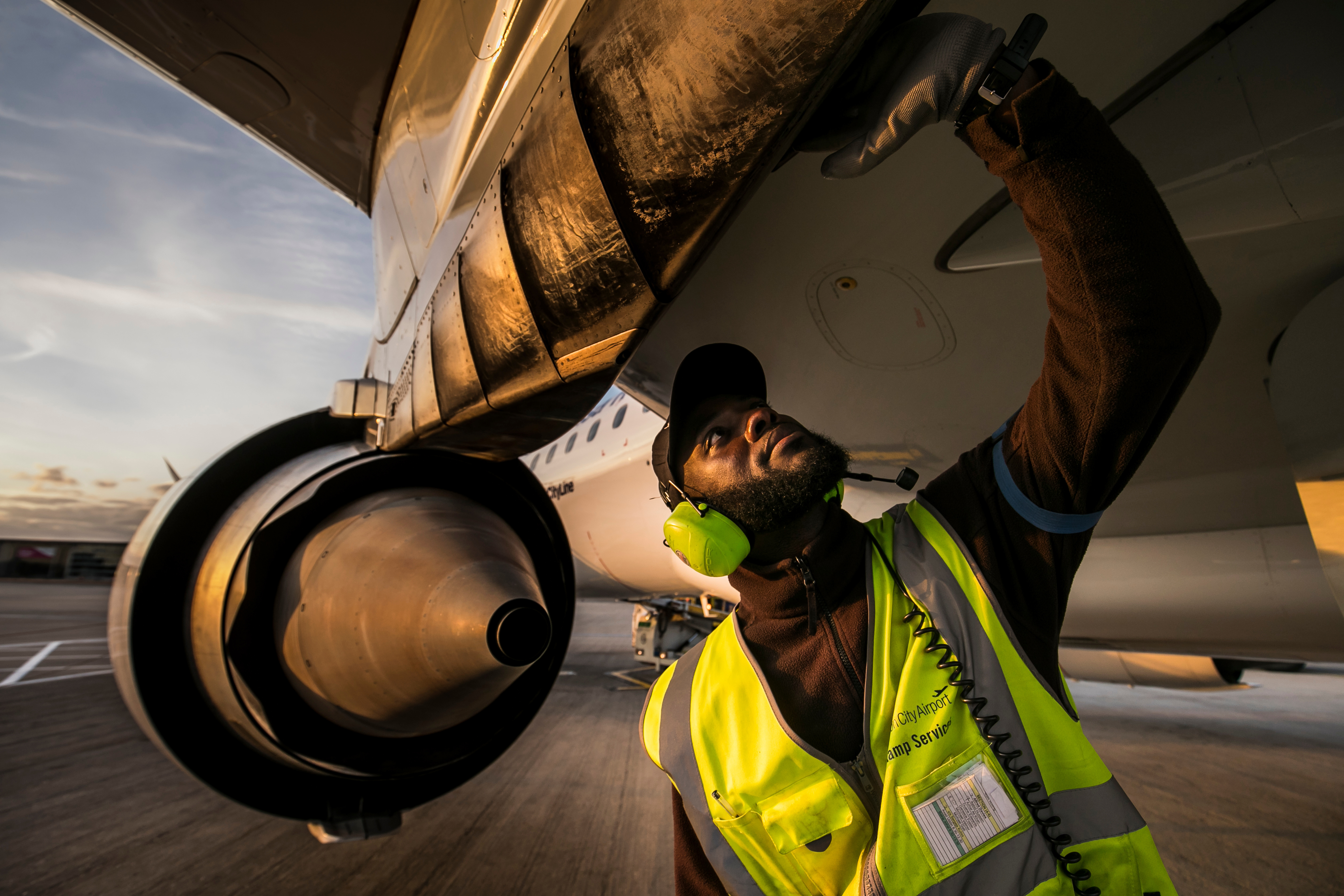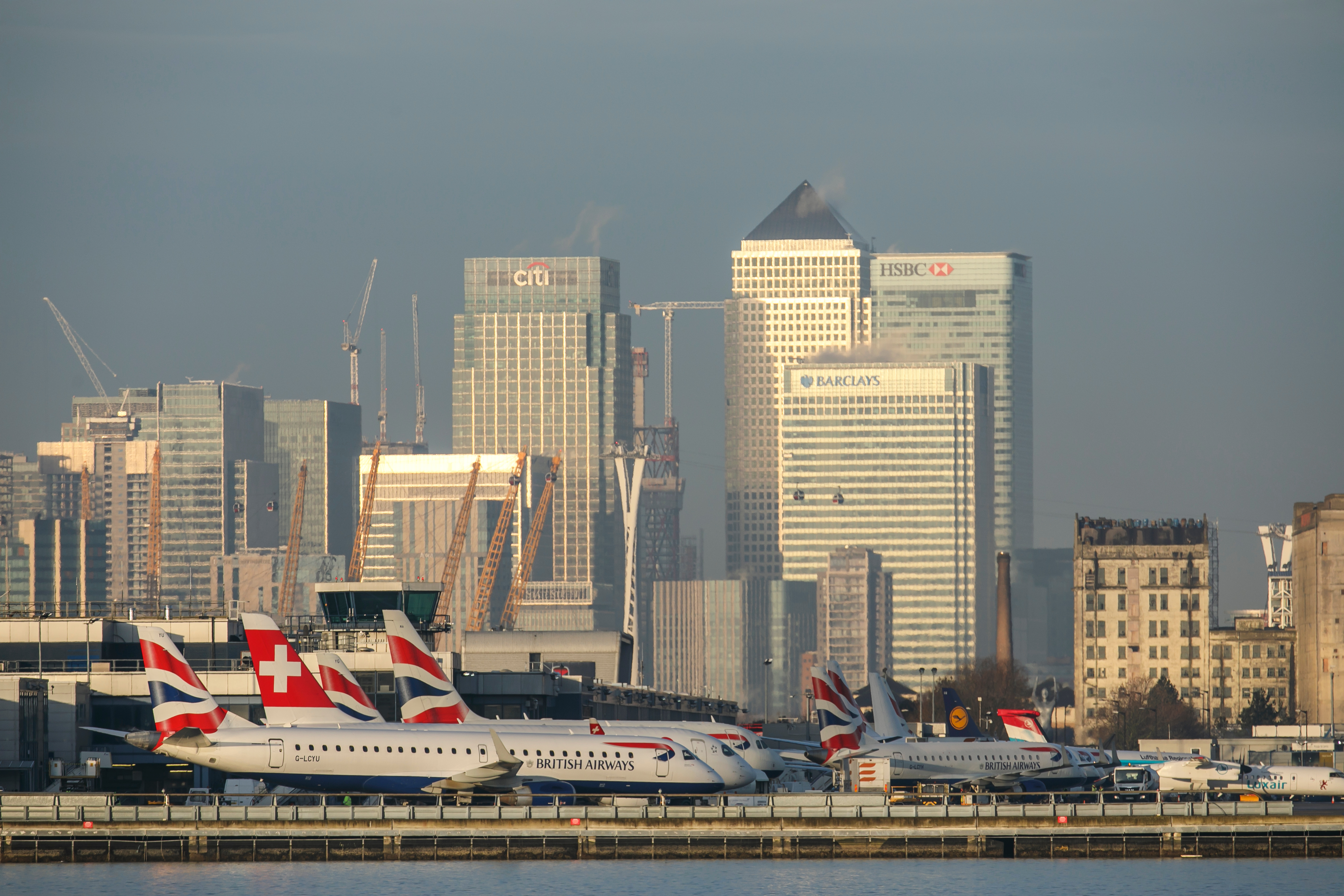Agility is a game changer in the infrastructure construction and programme management world and seldom has it been more important to Bechtel’s UK customer, London City Airport, than during the COVID-19 pandemic. When the demand for air travel dramatically fell in 2020, Bechtel, as the delivery partner of a multi-million-pound City Airport Development Programme (CADP), supported the airport to rapidly divide the programme and complete key improvements in its airfield by year end. The pivot in priorities enabled the gateway to continue to best serve its passengers while part of the expansion programme is temporarily paused until the industry recovers. The reset was made possible because of the trusting partnership that had been built between Bechtel and the airport since 2017.
Within two-weeks of the U.K’s national pandemic lockdown on 23 March 2020, the first contractor (CBS) had been remobilised to site and as key workers, all other contractors were back on site by 20 April, following new work procedures and social distancing.
At the height of the COVID-19 crisis, the airport took the decision to suspend commercial flights, re-opening on 21 June. During that period, the combined Bechtel and London City Airport team worked with contractors to adapt working methods to meet new health and safety standards and made significant progress with crucial elements of the CADP scheme. In addition to the government recommended measures including sanitising points, socially distancing, Perspex screens, and enhanced cleaning regimes; the team also implemented one-way systems, special COVID marshals, and wearable proximity sensors that warn construction workers when they are getting too close to each other.
When flying returned, the recovery of the UK aviation market was slower than expected with demand well below normal levels, including at London City, where passenger volumes were down on the record breaking 5.1 million passengers who used the airport in 2019. Furthermore, it became clearer that the recovery to previous levels would take longer than initially expected. Due to the impact of COVID-19, London City Airport decided that while construction of the new parallel taxiway, aircraft stands, immigration facility and baggage facility would continue, the second phase of the City Airport Development Programme, including construction of the terminal extension and new east pier, would be temporarily paused. These projects remain part of the airport’s future plans, and with the foundations now in place, will be progressed as demand recovers in the UK aviation market. Bechtel remains on standby to help deliver phase two in the future.
By the end of 2020, the airport team had completed a number of projects to deliver significant new airside infrastructure and capacity. This includes eight new aircraft stands capable of accommodating the new generation of cleaner, more sustainable aircraft such as the Airbus A220, and the Embraer E2-190, along with a full length parallel taxiway providing the ability to allow 45 aircraft movements per hour, when demand returns.
In addition, a new immigration facility was opened to passengers which will include 10 new E-gates, further improving the airport’s ability to offer the fastest passenger proposition in London. Furthermore, construction of a new baggage facility with increased capacity to over 1100 bags per hour, increased resilience, and featuring the latest security screening technology.
Reducing carbon emissions during construction was a major consideration and off-site construction of components for the deck that support the parallel taxiway and aircraft new stands helped lower emissions. This involved building over 6000 components in a separate controlled environment away from the site, giving the team efficiencies in material usage, waste reduction and carbon savings. It also decreased the number of construction activities happening on-site and their duration, reducing residents’ exposure to noise and vehicle movements. The team also reduced the embodied carbon of the pre-cast concrete by using cement replacement, resulting in a total saving of 3,105 tonnes of carbon dioxide equivalent. This equates to the annual emissions from 358 homes.
Peter Adams, Chief Development Officer said:
“The whole team achieved an incredible outcome in the most challenging of circumstances. Our partnership with Bechtel and the leadership provided by them and our suppliers were critical to creating one small glimmer of hope in an otherwise devastating impact that that coronavirus has caused across the globe. London City Airport now has the airside and passenger infrastructure that makes it a mainstream UK airport, and will now be able to welcome larger, more fuel efficient and quieter aircraft, along with a greater number of aircraft movements to broaden the choice and further enhance our award-winning passenger experience.”




